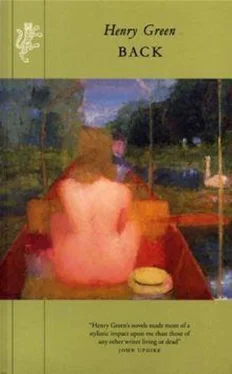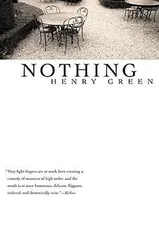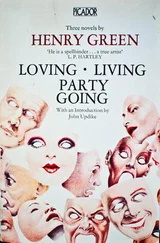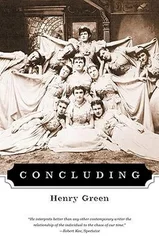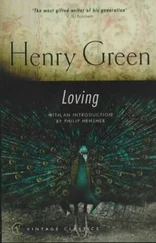“You ought to marry. A man like you should,” Mr Phillips repeated, well content.
“Why?”
“Because you’re alone, old man.”
“Aren’t you, as well?” Charley asked, still defensive.
“I’ve got Ridley.”
“Of course,” Charley muttered, but saying to himself “You old mutt, if you only knew.”
“No, it’s a duty,” Mr Phillips went on. “Because you’re moping. That’s what’s got you, moping.”
Charley stayed silent. His day to day sense of being injured by everyone, by life itself, rose up and gagged him.
“I say I hope you don’t mind my speaking like this? But I’ve noticed things. You’ve been different, old chap, since you got back.”
“Wouldn’t you be?”
“Very likely,” Mr Phillips admitted, as though granting a favour. “Still, we have to take the world the way we find it. There’s life to live after all. You’ll overlook my saying so, I’m sure, but you’re maladjusted.”
There was a silence.
“Nowaday’s no man’s got a right to lead his own life,” James went on, speaking with a fat man’s conviction. “It’s selfish, that’s what it is, not to marry and not to have the little old comforts marriage brings. With the responsibilities.”
“I’m not fit,” Charley brought out with difficulty, and with a great look of pain. His self pity had at last got the better of him.
“My dear old chap, if you’d rather not discuss it, why of course. In any case, what say we wander upstairs and get a bit of sleep?”
But Charley did not move.
“After those prisoner of war camps,” he began, then stopped.
“Well what about ’em? Pretty rough, what?”
“I can’t,” Charley said, shifting about in his chair.
“Well,” Mr Phillips said with a change of tone, “we have chewed the old rag over, haven’t we? Will you just look at the time? It’s beddy byes now for us, I say.” As he got up to go, the younger man thought, “Why you bloody civilian.”
In his bed he had a short spell of Rose before he began to feel he was back in Germany again.
The next day, the first morning of her visit, it was James called her with a cup of tea and the usual questions about whether she had been all right, slept well, and so on. But the following day, after James had been for hours in bed with her, it was Charley who brought the cup, and who sat down on the edge, looking as usual as if he was sleep-walking.
“Well Dot,” he’d said, with no more than a glance in her direction. But of course, on account of what she had just done with the other man, she’d absolutely shrunk away from him, couldn’t help herself. It made her feel a fool even to think of it after, for he couldn’t have been up to anything, not him, poor fish. So he’d drifted out, almost at once. You could never tell if he noticed.
But the first morning they had an egg for breakfast each, which made up for a good deal.
Then, when Charley was helping to clear away, he’d come on the Phillips daily help in the scullery, Rose’s precious Mrs Gubbins. James left them alone. Later on he asked Charley what had passed.
“‘Imagine seeing you again,’ was what she said,” Charley lied, for the woman, who hardly ever spoke, had come out with, “Imagine seeing you here again.”
“Now you know what you fought for, Charley boy,” Mr Phillips exclaimed. “What a welcome back, eh?” Then he told Dot this woman had been his wife’s treasure and how lucky he was to keep her.
“It’s for Ridley,” he went on. “Kids need a woman’s eye. She’ll see a sign in a kid’s face that a mere man would never even notice. It’s nature. So I feel safe with her looking in every day.”
“He’s a wonderful little chap,” Miss Pitter returned. “I’m sure he’s a credit to you.”
“I was just wondering if you’d think it was wrong to look after him as I do. Trust my own judgement, I mean. But it’s she gives me the confidence.”
“Well, things won’t last that way for ever, I don’t suppose.”
A roar of traffic kept him from hearing this.
“What’s that?” he asked.
She blushed. But she did not give in. She said it again.
“Well, things won’t last that way for ever, will they?”
“How d’you reckon?” James asked.
Miss Pitter actually began to shift from one foot to the other.
“I don’t know what I mean really,” she explained.
“No, go on,” he urged.
“Well a man like you will marry a second time one of these fine days,” she brought out, with some embarrassment.
“And very nicely put,” Mr Phillips rejoined. “But if ever I did, believe me, it would be for the boy’s sake.”
“Here’s your chance, Dot,” Mr Summers interrupted. They had forgotten all about him. He was feeling extraordinarily light-hearted this first morning. “Better than the office,” he added.
She was not in the least put out. She could handle him. And what was to happen had not occurred yet.
“Careful,” she said. “We’re not on the old advice notes now, you know,” she said.
It was still the first morning, and it continued wet outside. Charley slumped back into a chair, went to sleep all over again with the paper. She’d made another general offer to help in any way, only to be refused. Then, after James had put on their lunch, he came back into the sitting room. He said to her,
“Come over here a moment.”
They stood side by side once more, looking out through other leaded window panes onto the untidy back garden which was two apple trees, a dump of rubbish, and a tumble down shelter, on top of which sandbags had burst to grow ragwort. With the two hedges, it was all green and black and red, particularly a small crop of red apples half hidden, like sins, by the wet leaves, the black branches, and, on the ground, a lush rank grass.
“Rose,” he said, “that’s my wife, who’s dead and gone now, rest her soul, she particularly wanted to have a pergola built just where the air raid shelter is now. Of course the war put paid to that idea. But when I have a minute I’m going to, after we’ve licked those Germans. What’s your opinion? Of course there’s not a great deal of space, but what I’ve got in mind is one of those ones with a triangular sort of roof on brick piers, with seats back to back underneath. What d’you think?”
“Why that would be lovely,” she said.
“What was that? Because you see I’m beginning to realize I value your opinion.”
“I said, why that would be lovely.”
“Yes, and I’d have roses trained up for old times’ sake. You mustn’t judge of it now,” he explained, referring to the desolation. “She was always on at me to clear this mess up. Then, once she was taken, there never seemed to be time.”
“With roses growing all over that would be beautiful as a memorial,” she said.
“She was the best little wife a man ever had,” he replied, completely honest. “But I must go and see to our joint. I notice our friend’s well away,” he said of Charley. “He’s had a bad war, you know.”
“It’s terrible what those poor boys must have been through,” she said.
“What?” he asked, again unable to hear on account of the traffic. She repeated it.
“I’m sure he’s very lucky to have you to watch over his interests at his work,” he rejoined.
“Oh he’s a dear,” she countered, half-heartedly, thinking Mr Phillips was a bit of a dear himself, though of course she had no earthly notion of what was to happen, or that it was to be so soon.
They never saw Ridley except at meals, for which he was most often very late, and through which he sat in a gobbling silence. It seemed he spent all his time with the Gubbins children.
Читать дальше
